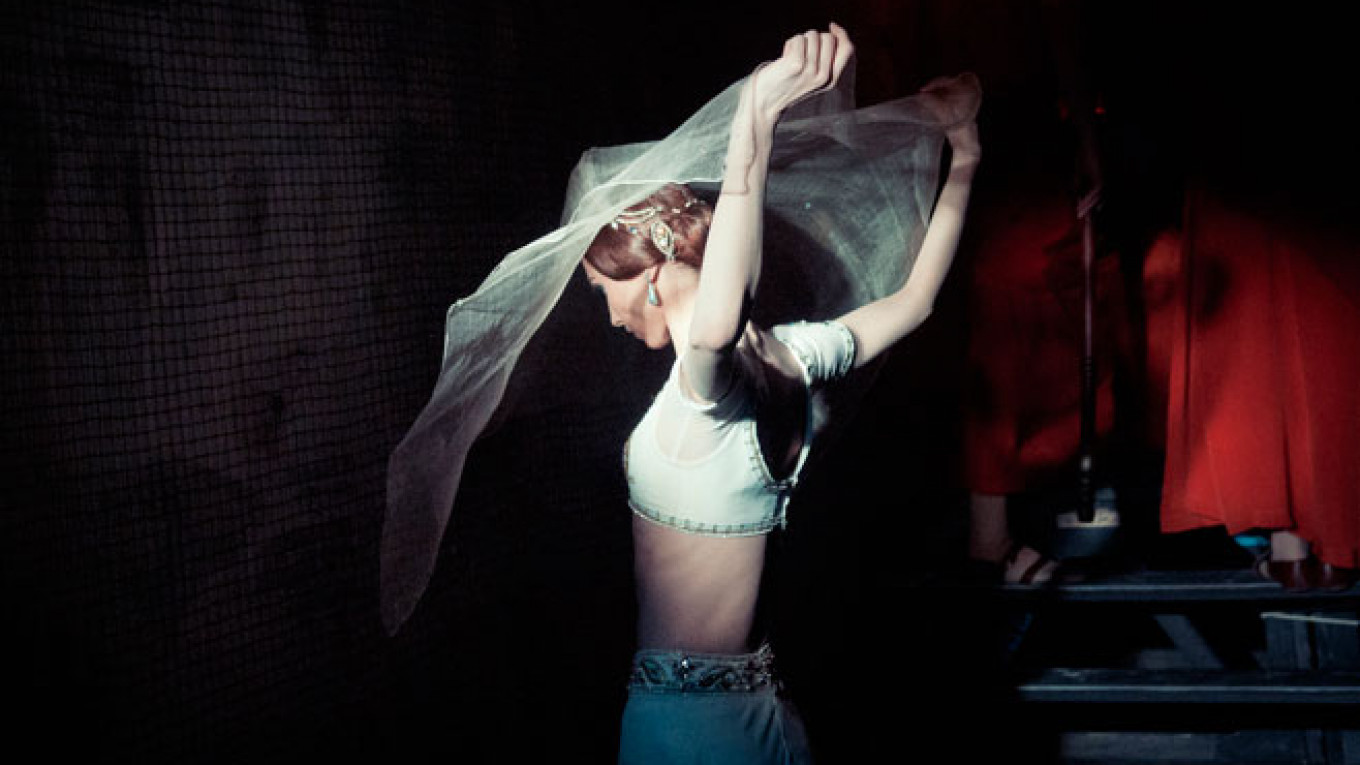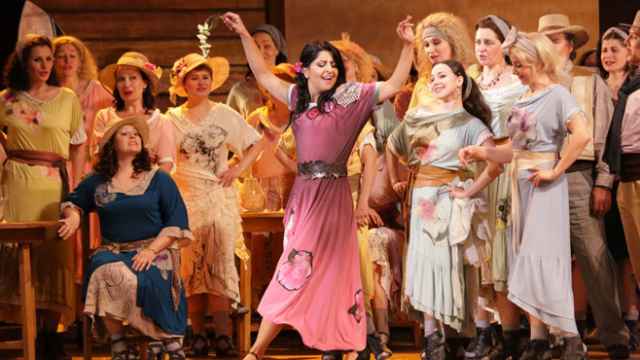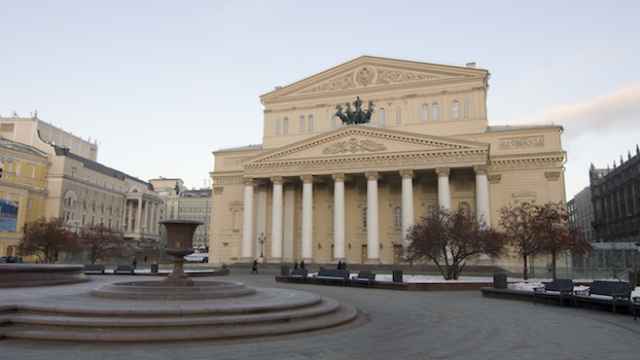In the summer of 2013, a British film production team was given unprecedented access to the Bolshoi Theater for purposes of making a documentary about the theater’s inner workings.
Titled “Bolshoi Babylon,” the film made its debut on cable television in late December and shortly afterward opened in British, U.S., Canadian and Japanese cinemas. Today it reaches Moscow, playing first at the Center of Documentary Cinema, followed by widespread Russian distribution and eventually, in March, due to be televised on Channel 1.
Filming began in the fall of 2013, in aftermath of a series of scandals that rocked the Bolshoi, most notably, the horrendous acid attack on ballet artistic director Sergei Filin early that year that left him partially blind. It also followed closely upon the appointment of Vladimir Urin as general director of the theater, with a mandate from the Bolshoi’s ultimate bosses at top level of the Russian government to put an end to “chaos” within the theater.
The film begins with the words of an unidentified male speaker that make particular reference to that attack on Filin and set the tone of what follows over the next 80 minutes.
“The Bolshoi, together with the Kalashnikov rifle, is one of Russia’s two most important Russian brands,” says the speaker, “and has a sacred meaning for Russia,” while the art of ballet that it practices “is closely connected to the national character.” He concludes by stating that the act of throwing acid in the face of Bolshoi’s ballet director “means that the country is sick, not just the theater, [and] serves as an omen of bad things to come.”
The emphasis placed by the film on the scandals of two and more years ago now seems rather dated. It is not that they’ve been forgotten, but that they’ve moved far away from the foreground, as management has instituted serious reforms, notably in its relationship with members of the ballet and opera companies, while the theater has enjoyed a period of relative peace and harmony.
Aimed to appeal to a broad international audience, the film concentrates entirely on the theater’s ballet company, which, unlike its operatic counterpart, is what most people outside of Russia consider to be “the Bolshoi.” And looking beyond the scandals, there is much in the film that remains relevant today.
Interviews with two prima ballerinas and one lesser female soloist offer fascinating insights into the often-difficult private lives of dancers, their physical struggles and agonies, their competition for roles and appearances on stage and what one of them describes as an almost congenital distrust of management.
Boris Akimov, a former star dancer and a highly regarded ballet coach since his retirement from the stage in 1989, who this year celebrates his 50th year at the Bolshoi, offers his customary positive thoughts about the theater. He compares it to a steamship, one that just keeps moving along, regardless of storms and turbulent seas. Urin and journalist Alexander Budberg provide some interesting, but not altogether coherent views on the Russian government’s involvement and interference in the affairs of the Bolshoi.
Viewers are likely to find special pleasure in the chance to glimpse life backstage at the theater, before, during and after ballet performances, as imaginatively caught by the film’s camera crew.
On the minus side, “Bolshoi Babylon” devotes what now seems an undue amount of time to the attack on Filin and the subsequent trial of its self-confessed instigator, the gifted former ballet soloist Pavel Dmitrichenko, and to general director Urin’s obvious dislike of Filin. During Urin’s tenure as head of the Stanislavsky and Nemirovich-Danchenko Musical Theater, Filin abruptly left his post as director of that theater’s ballet company to join the Bolshoi and subsequently lured away several of the Stanislavsky and Nemirovich-Danchenko’s most talented dancers.
Much time is also spent on the case of Nikolai Tsiskaridze, in his prime probably the Bolshoi’s most popular male soloist, whose incessant public criticism of almost everything about the theater under its previous management eventually led to his dismissal.
All of that now seems ancient history. Tsiskaridze has since become a model of decorum in his present post as director of Russia’s most prestigious school of dance, the Vaganova Academy of Ballet in St. Petersburg. And the Filin era at the Bolshoi ends next month with the expiration of his contract.
Replacing Filin will be Makhar Vaziev, once the outstandingly successful ballet director of St. Petersburg’s Mariinsky Theater and over the past eight years earning further plaudits for his leadership of the ballet company of Milan’s Teatro alla Scala.
Rather ironically, the Bolshoi was intent on hiring Vaziev five years ago. But when he unexpectedly turned the job down on the eve of what was to be a contract signing, the Bolshoi, somewhat in desperation, offered it to Filin instead.
Center of Documentary Cinema
2 Zubovsky Bulvar. Metro Park Kultury
cdkino.ru
Thurs. at 7 p.m.
Contact the author at artsreporter@imedia.ru
A Message from The Moscow Times:
Dear readers,
We are facing unprecedented challenges. Russia's Prosecutor General's Office has designated The Moscow Times as an "undesirable" organization, criminalizing our work and putting our staff at risk of prosecution. This follows our earlier unjust labeling as a "foreign agent."
These actions are direct attempts to silence independent journalism in Russia. The authorities claim our work "discredits the decisions of the Russian leadership." We see things differently: we strive to provide accurate, unbiased reporting on Russia.
We, the journalists of The Moscow Times, refuse to be silenced. But to continue our work, we need your help.
Your support, no matter how small, makes a world of difference. If you can, please support us monthly starting from just $2. It's quick to set up, and every contribution makes a significant impact.
By supporting The Moscow Times, you're defending open, independent journalism in the face of repression. Thank you for standing with us.
Remind me later.






